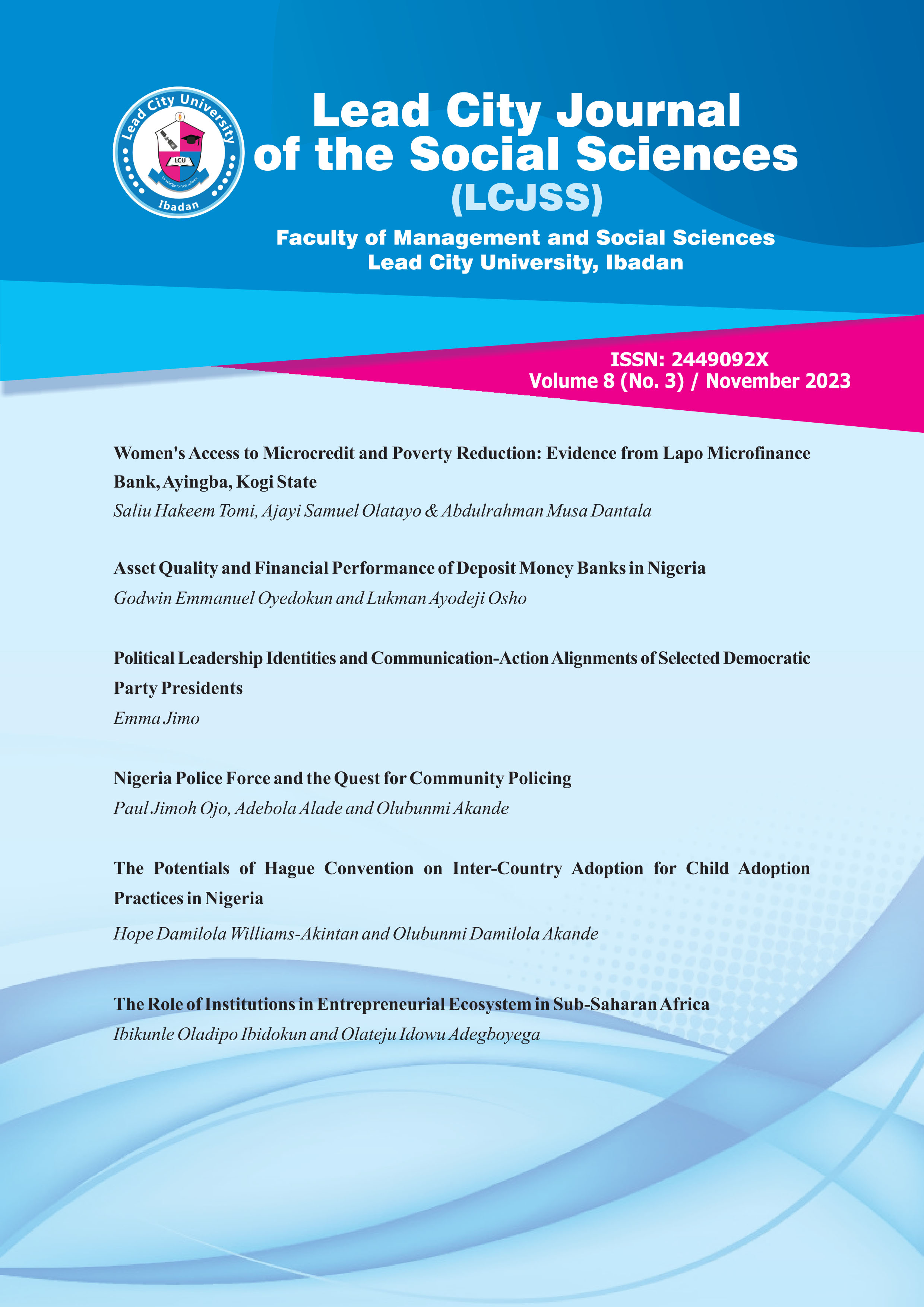Women's Access to Microcredit and Poverty Reduction: Evidence from Lapo Microfinance Bank, Ayingba, Kogi State
Women's Access to Microcredit and Poverty Reduction
Keywords:
Assets Quality, Non-performing loans, Loan loss provisions, Financial performance, Return on assetsAbstract
The study examined women's access to microcredit and poverty reduction: evidence from LAPO
microfinance. The study used primary data collected with the aid of a questionnaire. It utilized a
sample size of 275 through a simple random sampling technique. 275 copies of questionnaires
were administered and distributed among women lenders and staff of LAPO Microfinance Bank.
By chance, 235 copies of the questionnaire were completed and returned to the researcher.
Hence, the data was analyzed based on these returned copies of questionnaires. The study used
descriptive statistics of mean analysis, simple percentage and regression analysis to analyze the
data, as well as Analysis of Variance (ANOVA) to test the hypotheses. Based on the results, it was
revealed that the independent variables such as the rate of women's access to microcredit,
interest on savings of women's microcredit and microcredit duration had negative effects on the
poverty rate in Nigeria. Meanwhile, interest rate on women's microcredit, microcredit
participation/registration fees and microcredit initial deposit had positive effect on poverty rate
among women that have access to microcredit. The study concluded that women's access to
microcredit is necessary for poverty reduction, as evidenced from LAPO Microfinance Bank,
Anyigba. It was, therefore, recommended that the management of LAPO Microfinance Bank
should promote women's access to microcredit towards poverty reduction through an increase in
women's level of income, an increase in savings habit among women, increase in their standard
of living. Additionally, it strengthens the financial capacity of women and addresses challenges
such as; weak institution capacity, absence of a technology platform, weak capital base, and
inability to recover loans in order to enhance women’s access to microcredit towards poverty
reduction

